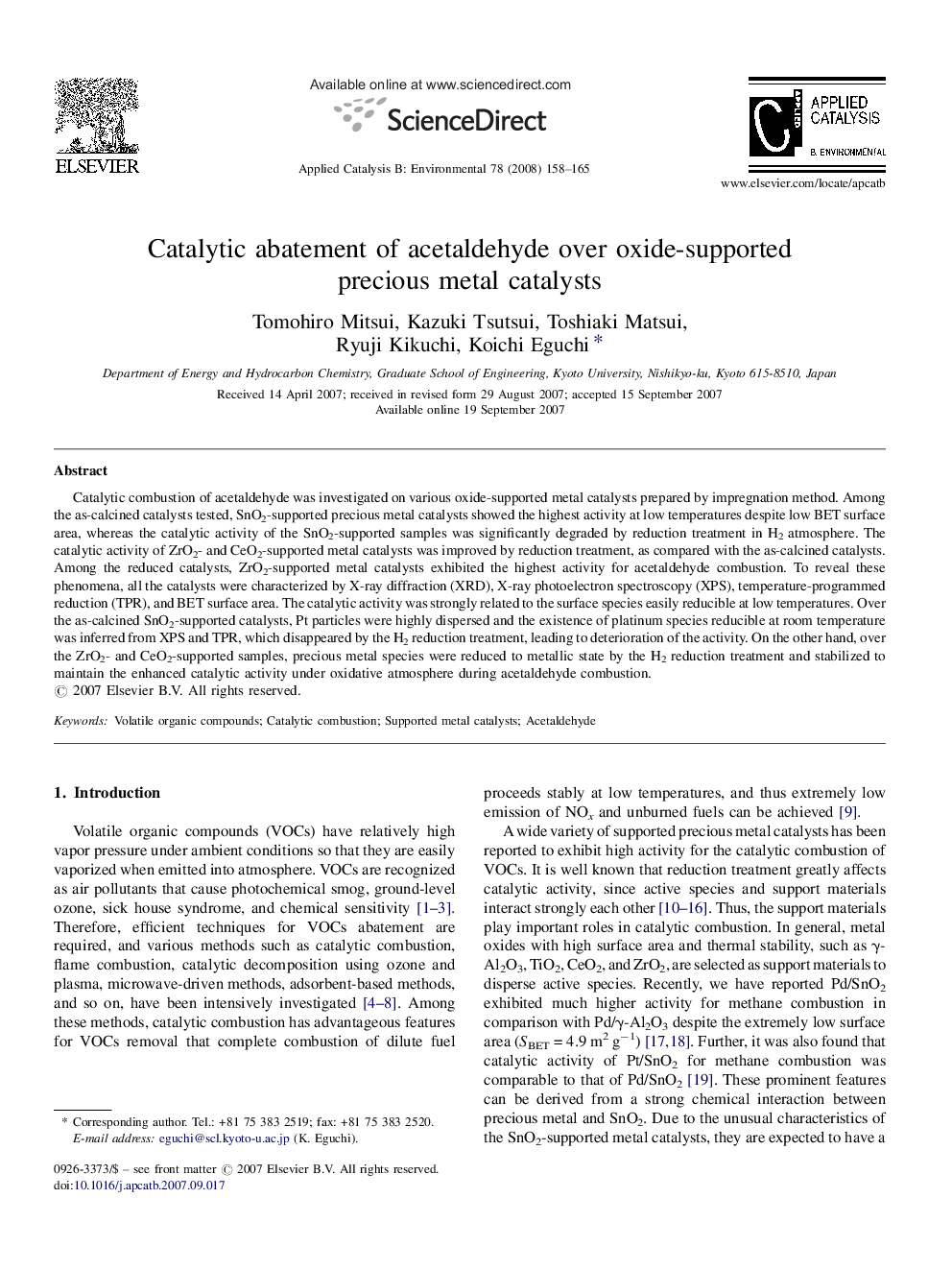| Article ID | Journal | Published Year | Pages | File Type |
|---|---|---|---|---|
| 48533 | Applied Catalysis B: Environmental | 2008 | 8 Pages |
Catalytic combustion of acetaldehyde was investigated on various oxide-supported metal catalysts prepared by impregnation method. Among the as-calcined catalysts tested, SnO2-supported precious metal catalysts showed the highest activity at low temperatures despite low BET surface area, whereas the catalytic activity of the SnO2-supported samples was significantly degraded by reduction treatment in H2 atmosphere. The catalytic activity of ZrO2- and CeO2-supported metal catalysts was improved by reduction treatment, as compared with the as-calcined catalysts. Among the reduced catalysts, ZrO2-supported metal catalysts exhibited the highest activity for acetaldehyde combustion. To reveal these phenomena, all the catalysts were characterized by X-ray diffraction (XRD), X-ray photoelectron spectroscopy (XPS), temperature-programmed reduction (TPR), and BET surface area. The catalytic activity was strongly related to the surface species easily reducible at low temperatures. Over the as-calcined SnO2-supported catalysts, Pt particles were highly dispersed and the existence of platinum species reducible at room temperature was inferred from XPS and TPR, which disappeared by the H2 reduction treatment, leading to deterioration of the activity. On the other hand, over the ZrO2- and CeO2-supported samples, precious metal species were reduced to metallic state by the H2 reduction treatment and stabilized to maintain the enhanced catalytic activity under oxidative atmosphere during acetaldehyde combustion.
